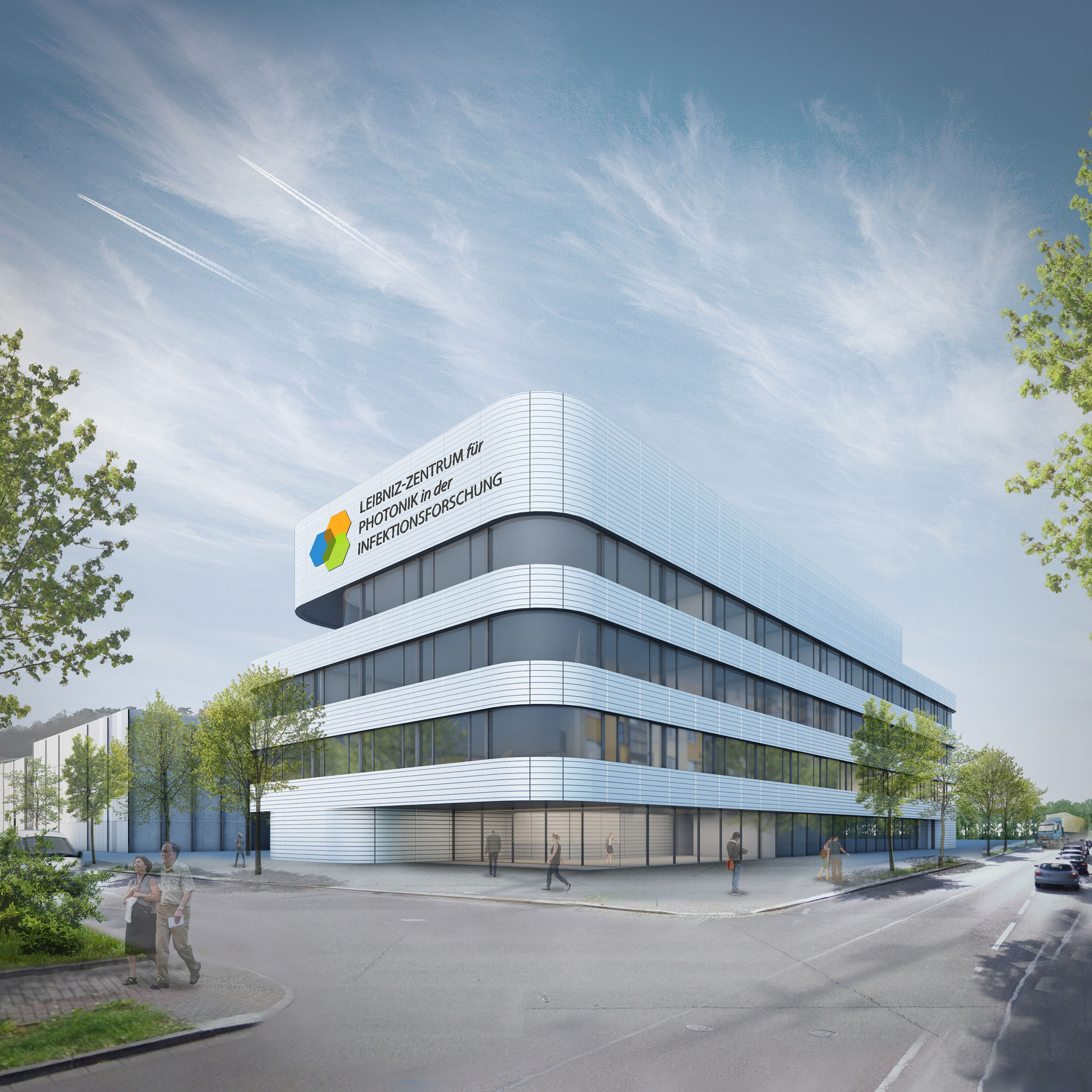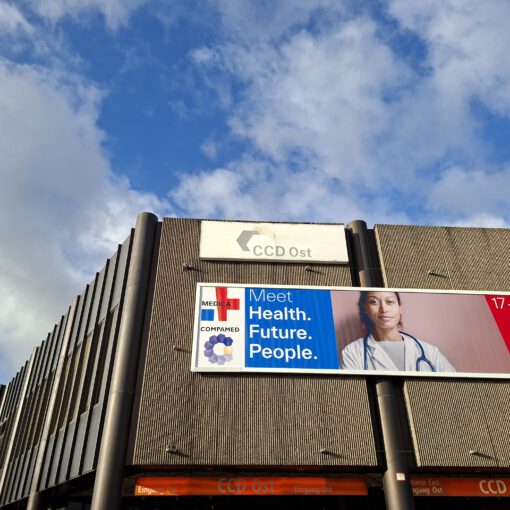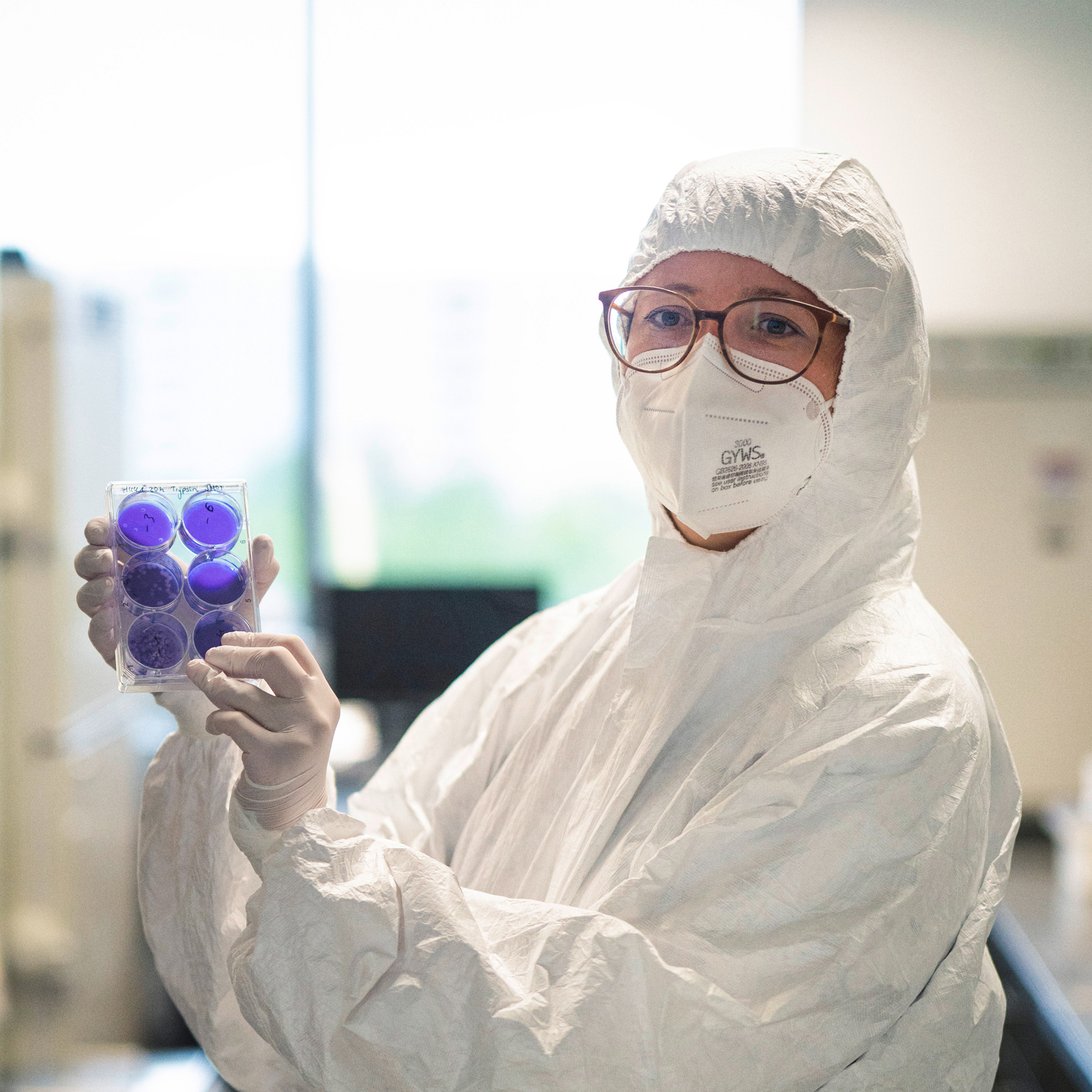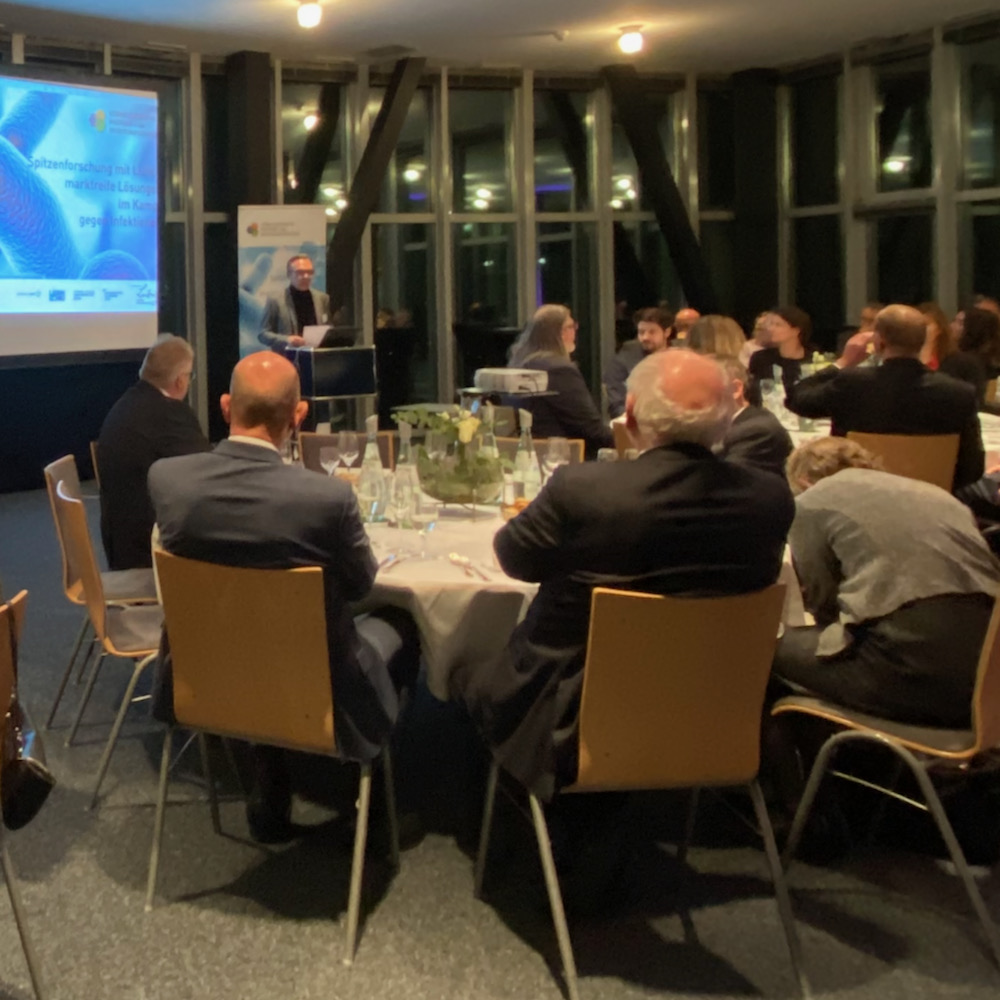Light-based technologies offer the potential to fight infectious diseases more effectively and to better manage future pandemics. In order to accelerate the development of medical products, diagnostic procedures and experimental therapies in this field, the Leibniz Centre for Photonics in Infection Research (LPI) is being established in Jena – a globally unique infrastructure for the translation of research findings into medical applications. Following a successful start-up phase, the four LPI consortium partners have now laid the foundations for securing the centre’s long-term future. The establishment of the LPI is being financed by the Federal Ministry of Education and Research (BMBF), while it will be financially self-supporting in the subsequent operating phase. LPI gGmbH has therefore now been founded to create and test the necessary strategic and logistical structures and processes for the development of medical solutions.
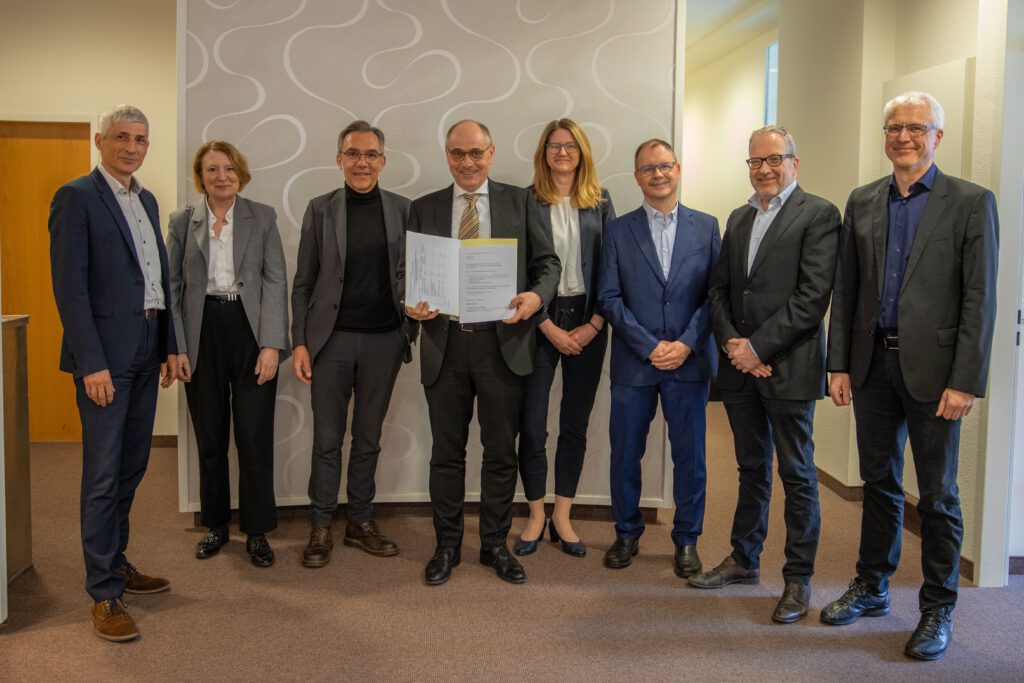
The founding of LPI gGmbH on 25 April 2024 with the founding members from the consortium partners’ institutions. In the picture (from left): Dr Thoralf Held, Chancellor of Friedrich Schiller University Jena (standing in for the President); Dr Brunhilde Seidel-Kwem, Commercial and Administrative Director of LPI gGmbH; Prof. Dr Jürgen Popp, Scientific Director of Leibniz IPHT; Notary Dr Thomas Weikart; Dr Karina Weber, Administrative Director of Leibniz IPHT; Dr Jens Hellwage, Scientific and Operational Managing Director of LPI gGmbH and Managing Director of InfectoGnostics e.V.; Prof. Dr Thomas Kamradt, Scientific Director and Dean of the Medical Faculty at Jena University Hospital (representing the UKJ Executive Board); Prof. Dr Axel Brakhage, Director of Leibniz-HKI. Picture: Stela Todorova/ Leibniz IPHT
With the founding of LPI gGmbH, the Leibniz Centre for Photonics in Infection Research is entering the next era. The four consortium partners of the new centre, the Leibniz Institute of Photonic Technology (Leibniz-IPHT), the Leibniz Institute for Natural Product Research and Infection Biology – Hans Knöll Institute (Leibniz-HKI), the Friedrich Schiller University Jena (FSU) and the University Hospital Jena (UKJ), have thus taken the decisive step to consolidate the LPI as a globally unique translational infrastructure – as a bridge from research to application. LPI gGmbH will be established as an open-user one-stop agency. It combines all services, technologies and competences under one roof, that are required to significantly accelerate the development and transfer of market-ready light-based diagnostic procedures and novel therapeutic approaches for the treatment of infectious diseases.
Dr Jens Hellwage, Managing Director of the InfectoGnostics research campus, and Dr Brunhilde Seidel-Kwem will take over the management of LPI gGmbH. ‘We are delighted to have gained this management duo for the LPI. It is an ideal appointment for the management of the LPI,’ emphasises LPI spokesperson and co-initiator Prof. Dr Jürgen Popp, Scientific Director of the Leibniz IPHT. ‘As an experienced bridge builder between science, medicine and business, Dr Hellwage will take over the scientific management, while Dr Seidel-Kwem, as a former commercial director at Jena University Hospital, will drive forward both the administrative and infrastructural development and ensure a close connection to the hospital,’ says Prof. Dr Jürgen Popp
‘I am looking forward to bringing the LPI’s unique concept to life so that the photonic innovations developed here for diagnosis, monitoring and therapy get to where they are needed more quickly,’ emphasises Dr Jens Hellwage. ‘In close collaboration with regional and international partners, we want to support all development steps from the concept to the certified medical product in an overall process.’
Dr Brunhilde Seidel-Kwem becomes the commercial director of LPI-gGmbH. In addition to establishing the governance and administration of LPI gGmbH, which is necessary for it to be fully operational, she is also driving forward the plans for the construction of the LPI research infrastructure on the grounds of the University Hospital. ‘We mean the infrastructure quite literally,’ explains Dr Brunhilde Seidel-Kwem. ‘Because a close spatial connection to Jena University Hospital is crucial to the success of the holistic LPI concept. I want to work towards this.’ As Commercial Director of the UKJ until March 2024, she successfully contributed to the realisation of the new university hospital building in the Lobeda district with numerous clinic, research and infrastructure buildings.
Equipped with special safety laboratories, the central LPI building on the grounds of the UKJ will give users access to the latest developments in photonics as well as the latest commercial optical and molecular technologies. A first-in-patient unit (FiPU), which will be created as a fundamentally new infrastructure in the intensive care area of the university hospital, will be used to research and test life-saving solutions for life-threatening patients in a clinical environment using the methods developed at the LPI.
‘At LPI, the path from the research laboratory to the hospital bed is considered from the beginning and propelled forward in a standardized process chain,’ emphasises Jürgen Popp. ‘As an internationally networked centre for photonics in infection research, the LPI can play a pioneering role. The combination of excellent research and rapid application development will make the LPI a global role model that can fundamentally change the transfer of knowledge from research to society and show how interdisciplinary and international cooperation can lead to real medical advances.’

